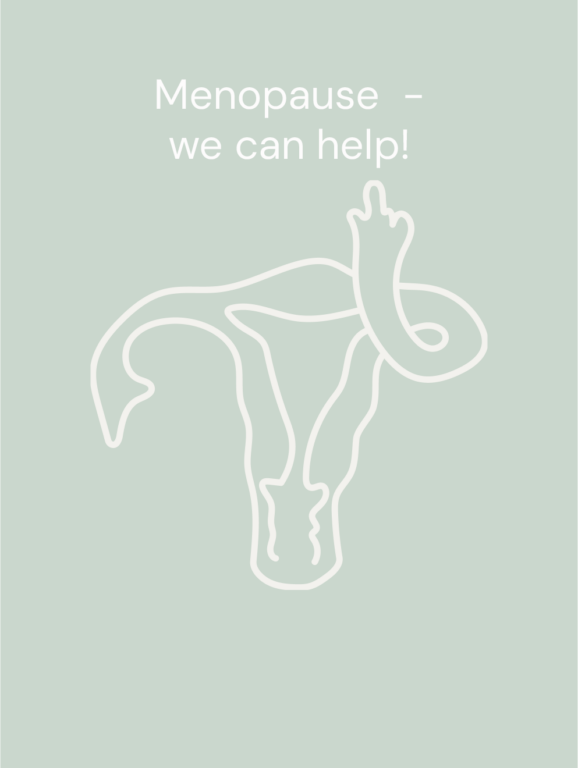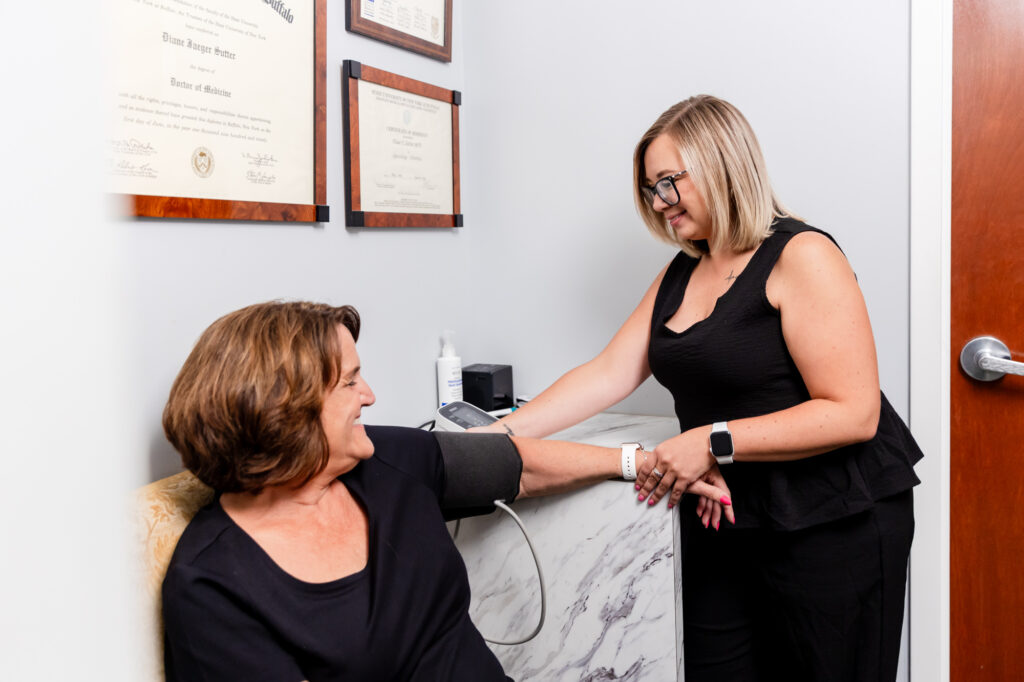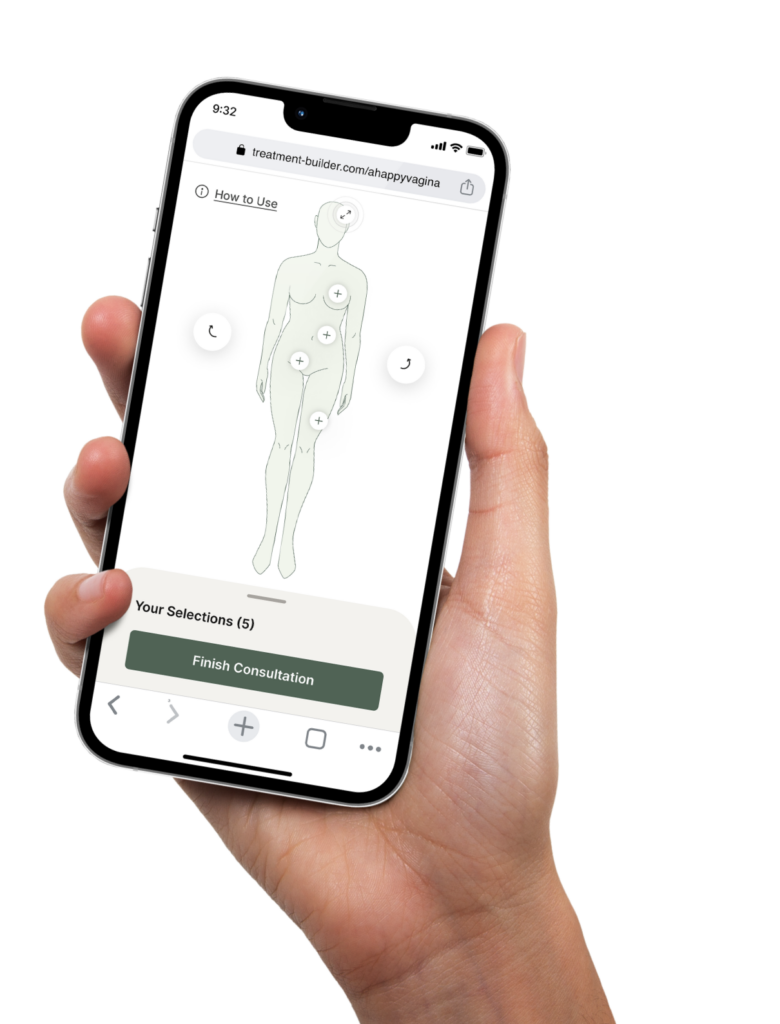Gynecology Does Not Need to Be a Mystery
Women put up with a lot—especially when it comes to healthcare. As a gynecologist specialist in Buffalo, I (Dr. Diane Sutter) wanted to create a practice where women could feel empowered at any age.
Gynecologists are better at gynecology than people who are not gynecologists. Your primary care doctor can perform well-woman exams, but I’m of the professional opinion that you should be seeing your GYN for it. Here is why: GYNs undergo extensive training in diagnosing and treating conditions specific to the female anatomy, such as menstrual disorders, contraception, and pelvic health.
Seeing a GYN vs PCP
While your primary care physician is highly trained and can provide your well-woman exams, it is generally better to see a gynecologist.
Gynecologists specialize in women’s health needs, including contraception, menstrual irregularities, pelvic pain, infertility, and menopause symptoms. They have focused training and experience in diagnosing and treating these specific conditions, ensuring tailored care for female reproductive health concerns.
While your PCP can handle your exams, there are limits to what they can provide before they will end up referring you to a gynecologist anyway. This is especially true if your exams come back abnormal or if you are experiencing advanced reproductive health concerns.
What a Gynecologist Specialist Can Treat
Your GYN plays a crucial role throughout your life, particularly during your reproductive years, and especially when you’re having any pelvic health concerns.
An annual well-woman exam is your opportunity to check in with your doctors and develop a comprehensive plan for managing your health.
What to Expect with a Well-Woman Exam
Typically, healthcare providers advise beginning annual well-woman exams when a woman becomes sexually active or turns 21, whichever happens first. However, it can be beneficial to start seeing a gynecologist once puberty begins, which can be as young as 8 in some girls!
A well-woman exam typically includes:
- Health history review
- Physical exam (including blood pressure, weight, and possibly height)
- Breast examination (checking for lumps)
- Pelvic examination (including a Pap smear if indicated)
- Screening for sexually transmitted infections (STIs), if necessary
- Discussion of contraception options and family planning
- Counseling on sexual health, including safe practices
- Evaluation of overall health and wellness concerns
Most women schedule an annual well-woman exam, and from there we can schedule follow-ups as needed.
Advanced Pelvic Health Concerns
Outside of your routine exams, seeing a gynecologist specialist in Kenmore is helpful when you’re having pelvic health concerns.
We can help diagnose pelvic health concerns through thorough examinations, including pelvic exams, ultrasound imaging, and lab tests. We will evaluate symptoms like pelvic pain or abnormal bleeding, and provide treatment and management plans accordingly.
We see patients for a variety of pelvic health concerns:
- Pelvic pain & heavy periods
- Urinary incontinence
- Hormone imbalance
- Sex drive & low libido
- Menopause management
- PMS & PMDD
- Fibroids
- PCOS
- Osteoporosis
While sometimes dealing with issues “down there” can feel awkward, I’m here to help you navigate those concerns easily. I have trained for years and can help with many complex pelvic health concerns.
Advancing GYN Care with Emsella and Emsculpt
We recently added state-of-the-art pelvic floor therapy for urinary incontinence in both men and women, which can also improve a woman’s sexual health and a man’s ED.
Emsella is a non-invasive treatment that uses electromagnetic waves to strengthen pelvic floor muscles, addressing urinary incontinence and enhancing pelvic health without surgery.
More than that, as part of our weight management program, we now offer Emsculpt NEO. This noninvasive treatment simultaneously builds muscle and reduces fat, enhancing overall body composition.
Improved muscle tone and strength can aid in posture, joint support, and functional movement. Reducing fat has many, well-documented benefits for health and wellness. Plus, for older adults, maintaining muscle strength is crucial for mobility, balance, and overall health.










